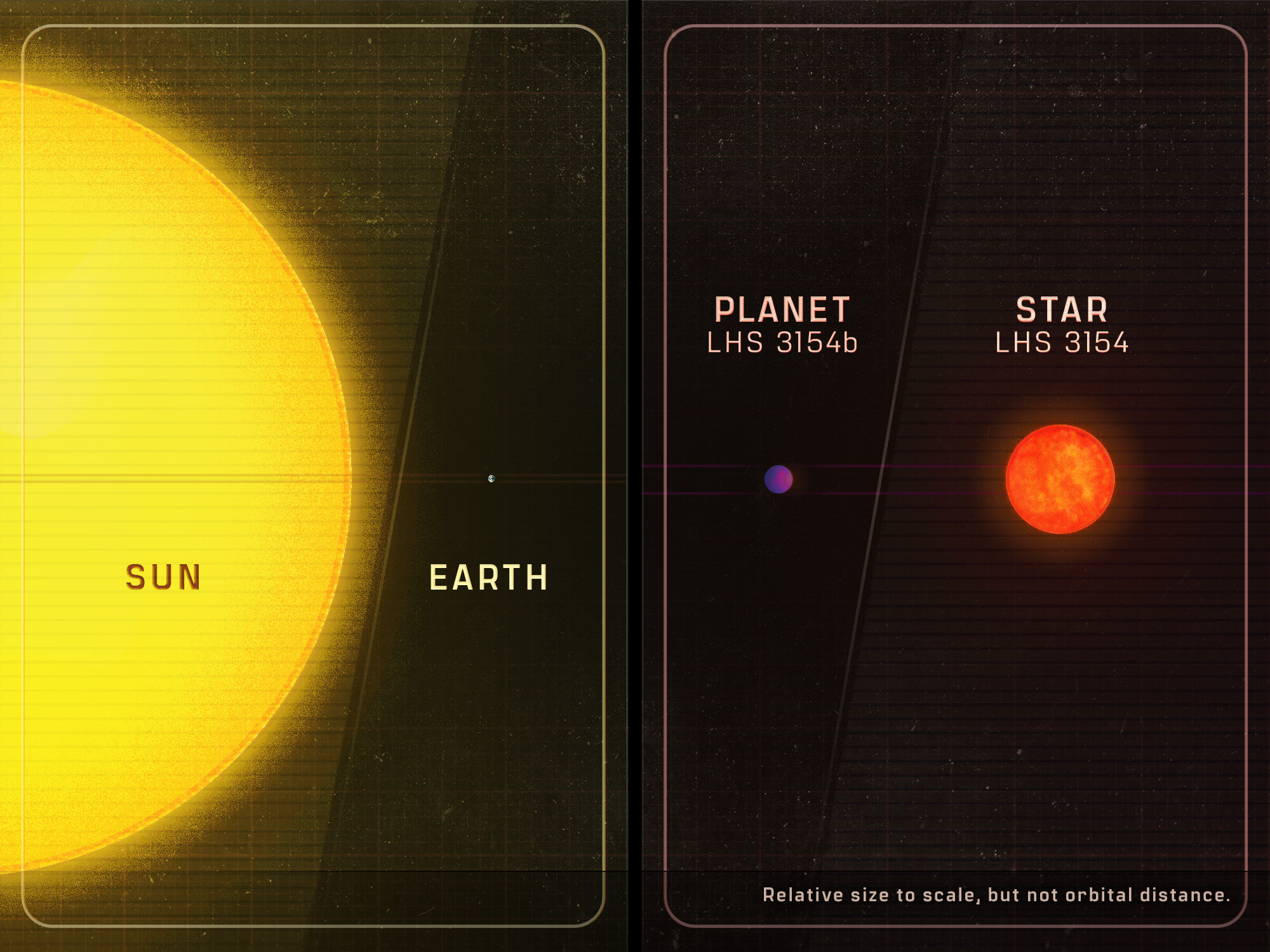The discovery of a planet that is far too massive for its sun is calling into question what was previously understood about the formation of planets and their solar systems, according to Penn State researchers.
In a paper published in the journal Science, researchers report the discovery of a planet more than 13 times as massive as Earth orbiting the “ultracool” star LHS 3154, which itself is nine times less massive than the sun. The mass ratio of the newly found planet with its host star is more than 100 times higher than that of Earth and the sun.
The finding reveals the most massive known planet in a close orbit around an ultracool dwarf star, the least massive and coldest stars in the universe. The discovery goes against what current theories would predict for planet formation around small stars and marks the first time a planet with such high mass has been spotted orbiting such a low-mass star.



Most likely. Couple this with the recent report that there are way more rogue planets than previously thought.
Which is kinda terrifying when you think about it
I don’t know why people keep referring to space stuff as terrifying or spooky.
It’s fascinating!
-Clarke.
If he can say it, I support the term.
Removed by mod
How much warning would we have? Weeks? Years? Centuries? If we had a decent warning, we might prioritize establishing lunar and martian colonies if, you know, the fate of all known life depended on it.
I feel like humanity would be more likely to fast track world war 3/4/whatever we’re on by then, nuclear winter, and near (if not complete) human extinction. But I also have little faith in humanity, so there’s that. 🤷♀️
Ok, but this is a space community. Back to the question. How much would we have?
I find the sheer enormity of the scale of both time and space terrifying
But why? How is it a threat to you?
I find it mind boggling, and inspires me to live my life by paying attention to what matters only.
I don’t really have a good answer for this and frankly it’s probably not rational or coherent or succinct so I’ll just say it comes down to mortality, knowing how small and insignificant we are and desperately clinging to a meaningless life on a meaningless planet in a meaningless etc. etc. etc.
There’s so much out there that we don’t know and probably never will and it’s all growing faster than we could ever hope to catch up with and we’ll all be dead so soon relative to the lifespan of the universe and it’ll just keep going on long after our meat sacks stop functioning and turn into nothingness until maybe everything turns into nothingness and then there’s never anything ever again or maybe that won’t happen but we’ll all still be long, long gone.
Well, when you put it like that, yup. I can relate.
I’ve been trying to come to terms with it by thinking (or trying to convince myself) that this curiosity and willingness to observe everything and learn all things are just evolutionary adaptations whose sole purpose is to survive. Like, our curiosity to explore pushed us to get to better places with better living conditions. But that survival function is now too overfitted, like cancer cells that just replicate and replicate and replicate… strange analogy, I know. So there’s nothing inherently of value in having such attributes. “Why are we here? Where are we going?” So deep! Hm, nope. We’re just machines programmed to survive by just searching, searching, searching, and finding, and understanding, and harnessing, and… searching and searching and searching.
Anyway. Then I stop thinking about that and go make myself a sandwich.
Especially for someone (me) who just watched Melancholia - gulp!